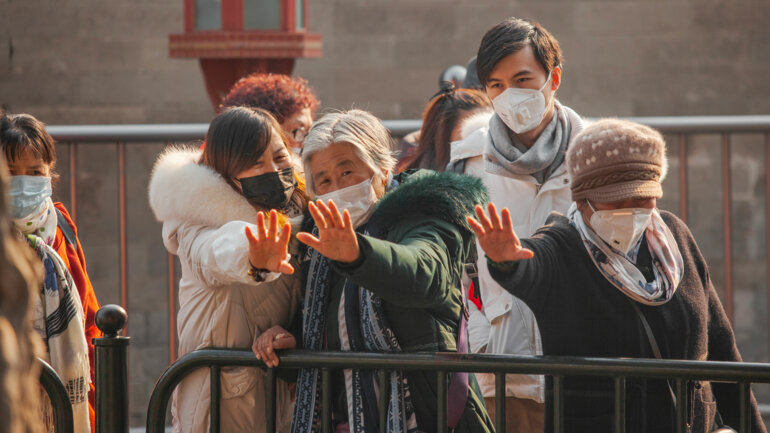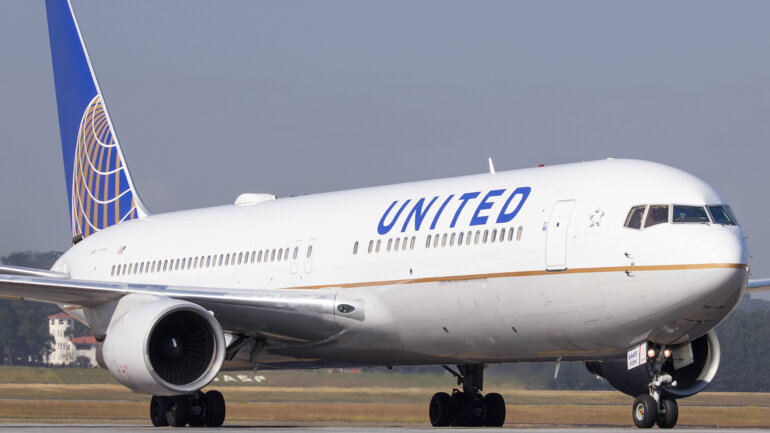
The International Monetary Fund on Tuesday urged Togo to maintain fiscal discipline in the run-up to the 2010 elections and said the country's economic recovery program was progressing slowly.
"With substantial downside risks remaining due to the global recession, the near-term challenge will be to manage lower demand for Togo's export commodities," the Fund said in a statement."Over the medium-term, it will be important to persevere with the implementation of sustainable macroeconomic policies and structural reform measures that support external stability, faster growth and accelerated poverty reduction."
The IMF board concluded consultations with Togo on April 20. It also completed the second review of Togo's performance under its poverty reduction and growth facility arrangement, or PRGF.
Togo qualified to enter the debt relief program, which is managed by the IMF and World Bank. The PRGF seeks to reduce the debt burdens of the world's poorest countries.
At the end of the program, most or all of Togo's debt to the IMF and World Bank, as well as debts to other governments, will be written off.
IMF Executive Board Concludes 2009 Article IV Consultation with Togo (IMF press release)
On April 21, 2009, the Executive Board of the International Monetary Fund (IMF) concluded the Article IV consultation with Togo1. The Executive Board also completed the second review of Togo's performance under its Poverty Reduction and Growth Facility (PRGF) arrangement.
Background
Since 2006 Togo has made significant strides in overcoming the effects of a protracted period of political, social and economic crisis by embarking on a program of major political and economic reforms. Implementation of the PRGF-supported program has been strong since its launch in 2008, despite the adverse impact of global price shocks and heavy flooding. With these difficulties, growth reached only 1.1 percent in 2008. All quantitative targets and structural benchmarks for the second review of the PRGF-supported program were met, many with ample margins or in advance, with only two exceptions—the indicative target for social and investment spending was undershot and there was an unavoidable delay in launching a study of the phosphate sector. Priority spending fell below its target largely owing to slow implementation of emergency repairs after the 2008 floods, which highlighted capacity constraints. After inflation peaked in August 2008, it dropped back down to 8.4 percent by year-end thanks to falling world oil and food prices, which also mitigated the deterioration in the terms of trade and the current account deficit (6.6 percent of Gross Domestic Product).
A nascent recovery in Togo's economy following three years of reforms is expected to be offset in 2009 by the impact of the global recession. In response, the authorities have reiterated their commitment to the PRGF-supported program and aim to accelerate growth-enhancing structural reforms. A rebound in subsistence agriculture and rising public investment are expected to be counterbalanced by the adverse effects of the global recession, even though these should be moderated somewhat by the limited global integration of Togo's financial sector and its already depressed exports. Nevertheless, the global recession's impact on exports and remittances is expected to keep growth to just 1.7 percent in 2009 and 2.1 percent in 2010. Improving terms of trade in 2009 will narrow the current account deficit slightly to about 6 percent.
As a near-term response to slow growth in the face of the global recession, the authorities have appropriately placed high priority on increasing public investment spending, financed by growing external assistance and by shifting unspent financial resources intended for emergency projects in 2008 to 2009. The authorities are forcefully implementing plans to address capacity constraints in project execution, with the support of development partners. At the same time, the authorities are also aiming to accelerate implementation of structural reforms in the banking sector, public finances, and state-owned enterprises. The planned increase in the share of domestic arrears cleared in cash will support economic recovery by helping address the liquidity and credit shortage in private sector.
For the medium-term, the authorities rightly emphasize structural and fiscal measures to enhance the low growth observed recently, which has resulted in a stagnation in per capita income and slow progress toward the Millennium Development Goals. Against the backdrop of global economic instability, the main challenge will be the implementation of sustainable macroeconomic policies and structural measures that support external stability, faster growth and accelerate poverty reduction.
Despite notable progress so far, Togo's economic outlook faces significant risks. A worsening of the global recession or a heavier than expected impact could further depress growth and revenues, as well as delaying private sector involvement in restructuring state-owned banks and enterprises. The run-up to the 2010 presidential elections might also create political uncertainty or complicate program implementation. The authorities, however, stressed their determination to continue to implement the program fully and to achieve the Heavily Indebted Poor Countries Initiative (HIPC) completion point as early as possible in 2010.
Executive Board Assessment
Executive Directors agreed with the thrust of the staff appraisal. They commended the Togolese authorities for their strong implementation of economic policy and reforms, despite the adverse global and domestic circumstances. Fiscal policy remained prudent, revenue performance is being strengthened, and good progress was made on growth-oriented structural reforms.
Directors observed that the economic recovery program is bearing fruit more slowly than expected, and conditions are likely to remain difficult. With substantial downside risks remaining due to the global recession, the near-term challenge will be to manage lower demand for Togo's export commodities. Over the medium-term, it will be important to persevere with the implementation of sustainable macroeconomic policies and structural reform measures that support external stability, faster growth and accelerated poverty reduction.
Directors welcomed the authorities' prudent policy response to last year's economic shocks and their intention to continue to focus on targeted measures to mitigate the social impact of shocks and on supporting agricultural production, especially of food. They encouraged the authorities to maintain fiscal discipline in the run-up to 2010 elections.
Directors noted that public investment to rehabilitate infrastructure, including flood damage, will be an important support for economic activity. They supported a modest fiscal loosening for 2009, including shifting unspent money intended for emergency projects from 2008 to 2009 and increasing the share of domestic arrears cleared in cash. Noting that capacity constraints hamper project spending, Directors encouraged the authorities to follow through on plans to strengthen project execution and procurement processes, with the support of development partners. It would also be important to review the oil pricing mechanism to avoid accumulation of contingent liabilities by the public sector.
Directors supported the structural reform agenda's emphasis on accelerating and deepening reforms to encourage higher growth. They viewed reform priorities as appropriately focusing on consolidating fiscal governance, reforming the state-owned phosphate sector following up on the strategic audit, and restructuring the financial sector. Directors welcomed the recapitalization of state-owned banks and the intention to attract strategic investors as quickly as possible.
Directors agreed that Togo's membership in the West African Economic and Monetary Union has provided an important anchor of stability. To safeguard external competitiveness and boost productivity, they stressed the importance of improvements in the investment climate and delivery of basic services, as well as of public investment in education, health and infrastructure.
Directors noted that the projected increases in external assistance are essential to sustainably finance the needed increase in investment and social spending, and Togo's economic recovery. They observed that this will require the authorities' continuing commitment to strengthen fiscal policy, improve institutional capacity, and implement key structural reforms. In this connection, Directors welcomed the authorities' determination to fulfill the conditions necessary to achieve the floating trigger points for the HIPC completion point as early as possible in 2010. They underlined the importance of fiscal and financing policies, including a prudent debt management strategy, that maintain robust debt sustainability over the medium term.





